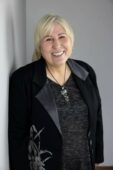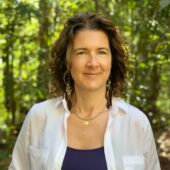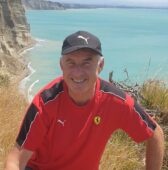
Therapists in Mawson Lakes, South Australia SA, Australia AU

H-L Therapy
Counsellor/Therapist, BSW, MGY, Dip of Hypno-Counselling, Cert Clinical Hypno-Psychotherapy, AMHSW, MAASW, CMAHA
H-L Therapy is an innovative, boutique service provider of psychosocial therapy servicing adult Medicare, NDIS and privately paying clients in Adelaide, South Australia. Private and Medicare clients are being seen mostly by Alicja Weidner / Principal Therapist from H-L Therapy in our office, which is located at Modbury North in the north-eastern region of Adelaide. Services for NDIS participants are fully subsidised by NDIS and provided by H-L Therapy staff at either the H-L Therapy office or in other community locations, including participant's houses.
Mairead Cleary
Registered Psychotherapist, Masters in Gestalt Therapy
I work from a nature-based perspective and like to support you to find your particular way of being in the world. Life is challenging right now. Sometimes it's scary and often it's confusing. The climate and ecological changes happening to us and around us are daunting. But with proper support it's possible to find your own ground, your own voice and your own place in it all. I believe in empowering you to find your own answers and your own ways of dealing with whatever you’re facing.
Su (Xufeng Su)
Psychologist, Provisional Psychologist
I am a provisional psychologist who is committed to delivering genuine person-centered and strength-based therapy and providing a space that is safe, welcoming and free from judgment or stigma. As a therapist, I aim to assist and support clients in exploring their unique values and identities. Through my lived experience, I have a deep understanding of the imbalance and distress we can feel when experiencing oppression or being unable to live our authentic lives. When supporting my clients – instead of assuming the expert position – I partner with them, exploring their potential and understanding who they want to be. During the therapy journey, my goal is to create a secure place where my clients can be heard.
Relationship Mentor and Coach
Licensed Professional Counsellor, MNZAC
Are you trapped in an unhappy marriage, tiptoeing around each other with a constant knot in your stomach, desperately yearning for the trust, intimacy, and connection you once cherished? Do you long to rekindle the flames of passion and rediscover the bond of best friends and lovers you once shared?
If this resonates with you, let me introduce myself. I'm Grant, and I specialize in coaching married couples who find themselves navigating the treacherous waters of troubled marriages. I understand the turmoil and frustration that comes with feeling like your relationship is falling apart.
Are you eager to work on your marriage, but your partner seems emotionally distant, leaving you unsure of where to even begin? Perhaps you've heard those heart-wrenching words from your partner: "I'm not in love with you anymore," leaving you with a sense of hopelessness. The thought of divorce may haunt your thoughts, weighed down by the emotional toll it would take, the financial costs, and the impact it would have on your children.
Sleepless nights may be your constant companion, as anger, anxiety, fear, and feelings of betrayal consume your thoughts, leaving you wondering if there's a glimmer of hope for revitalizing your marriage. Instead of the closeness and intimacy you once enjoyed, you might feel like mere roommates, sharing a bed but worlds apart.
Intimacy and passion may have become distant memories, leaving you yearning for the connection you once had. You've likely sought advice from well-meaning friends, scoured blogs, and even attempted couples therapy, but nothing seems to mend the rift in your relationship.
Allow me to share my story. With over 40 years of experience and training as a professional licensed counsellor and in various couples therapy modalities, I have helped thousands of individuals and couples navigate the complexities of troubled relationships. I am the founder of the Million Dollar Marriage Program and The Marriage Whisperer, a 7-day intensive couples program designed to reignite the spark in your marriage.
I firmly believe that healing relationships can have a ripple effect, not only on couples but also on their children and entire families, ultimately making the world a better place. My own journey towards happiness and fulfillment wasn't always smooth, but today, I cherish a wonderful life filled with loving children and grandchildren.
Now, my mission is to extend a helping hand to other families and marriages in need of transformation. Together with my partner, Christine, I am committed to being the best husband, father, grandfather, therapist, and coach I can be. Our shared passion is to contribute to the betterment of relationships worldwide.
From the depths of my heart, I want to emphasize that it's never too late to have an amazing relationship. If your marriage is struggling, and you're grappling with unhappiness, please don't hesitate to reach out. I'm here to guide you on the path to healing and rediscovering the love and connection you deserve.
For my free training: The 5 Step Gameplan From Lonely To Love:
Visit www.grantwattie.com/resources
Counselling Mediation & Relationship Centre
Marriage and Family Therapist, B.Coun,Graddip Family Dispute resolution FDRP
Why Choose The Counselling, Mediation and Relationship Centre?
Research shows the sooner you start reversing your pain or trauma, the better your chances of feeling relief faster. And we’re proud to say that many people who use our services experience a marked difference in their lives.
Our life experiences, positive or negative, are building blocks for who we are today and can be effective tools in creating who we aspire to be tomorrow.





